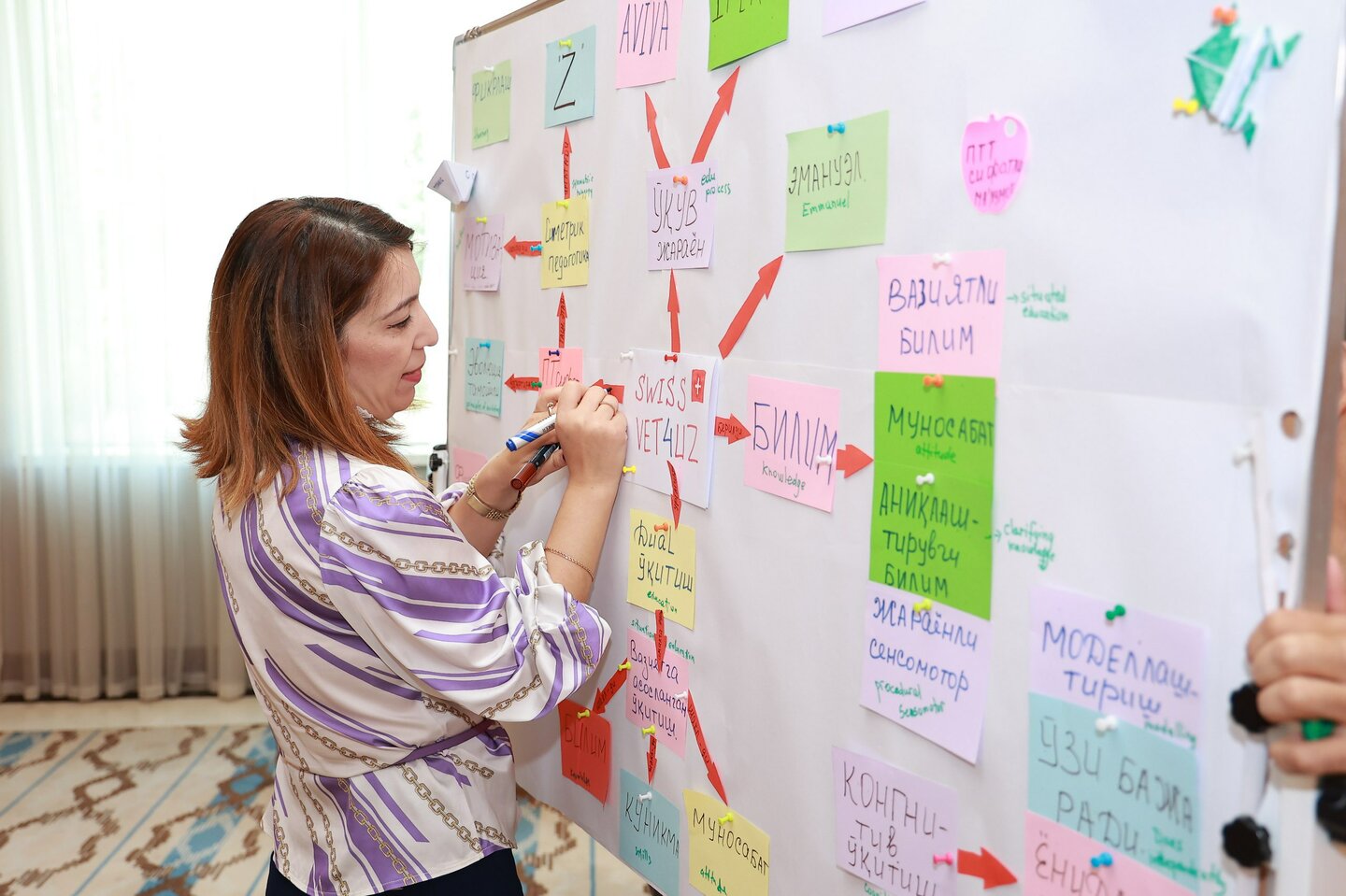Vocational education in Uzbekistan has undergone significant changes in recent years. A study supported by Helvetas has brought challenges and gaps to light. These are now being addressed by the reforms of the technical and vocational education sector.
-
Project NameVET4UZ: Support to VET reforms
-
Project Phase2021 to 2025
-
FundingThis project is an SDC mandate
-
Thematic focusEducation and Vocational Skills
Voice, Inclusion & Cohesion
Navigating a changing context
In Uzbekistan, vocational education used to be a compulsory part of an 11-year education. As such, it was the most important educational pathway for most young people (93%) for a long time. In 2017, reforms made vocational education optional and fee-based. Before that, more than one million students were enrolled in vocational education; today, only 23.2% of Uzbek young people.
At the same time, vocational education policy changed, involving many line ministries and agencies: the sector became fragmented and inefficient. In 2023, even though the government reduced the number of actors involved, the system remained fragmented and with this, basic challenges remained.
The VET4UZ project supports the ongoing reforms and aims to increase the employability of young people in Uzbekistan and provide them with more lucrative jobs.

Strengthening cooperation between state actors and the private sector
To this end, Helvetas conducted a survey on quality of vocational education and training in 2022 and formulated recommendations. The survey targeted national and regional authorities, employer associations, VET providers and employers.
It showed that the focus is more on inputs such as learning materials, infrastructure and teacher salaries than on competencies, that there is a lack of opportunities to learn on the job, and that there are problems developing, assessing and certifying training programs. There is also little vocational guidance for students, and employer organizations are not involved in vocational education. This leads to a gap between the skills taught and those actually required in the labor market - and thus between job seekers and future employers. This interface should be strengthened, and Helvetas is working to achieve this.
Promoting work-based learning
Helvetas thus promotes a system that is oriented towards quality results. This means that vocational providers will have to raise the quality of their training offer and the students will increasingly have to achieve certain standards that are in line with employers needs. This stabilizes the VET sector for providers, enables innovation, work-based learning, and overall enhances attractiveness and effectiveness of vocational education.


